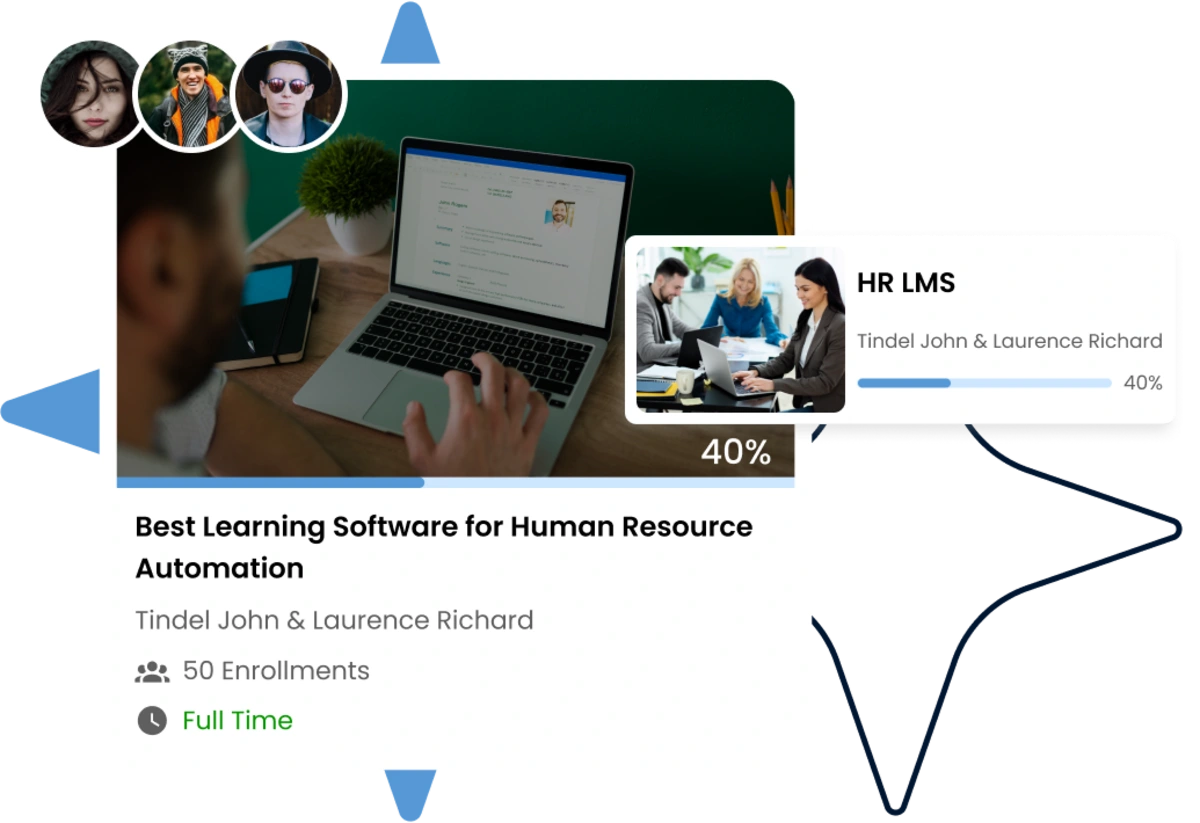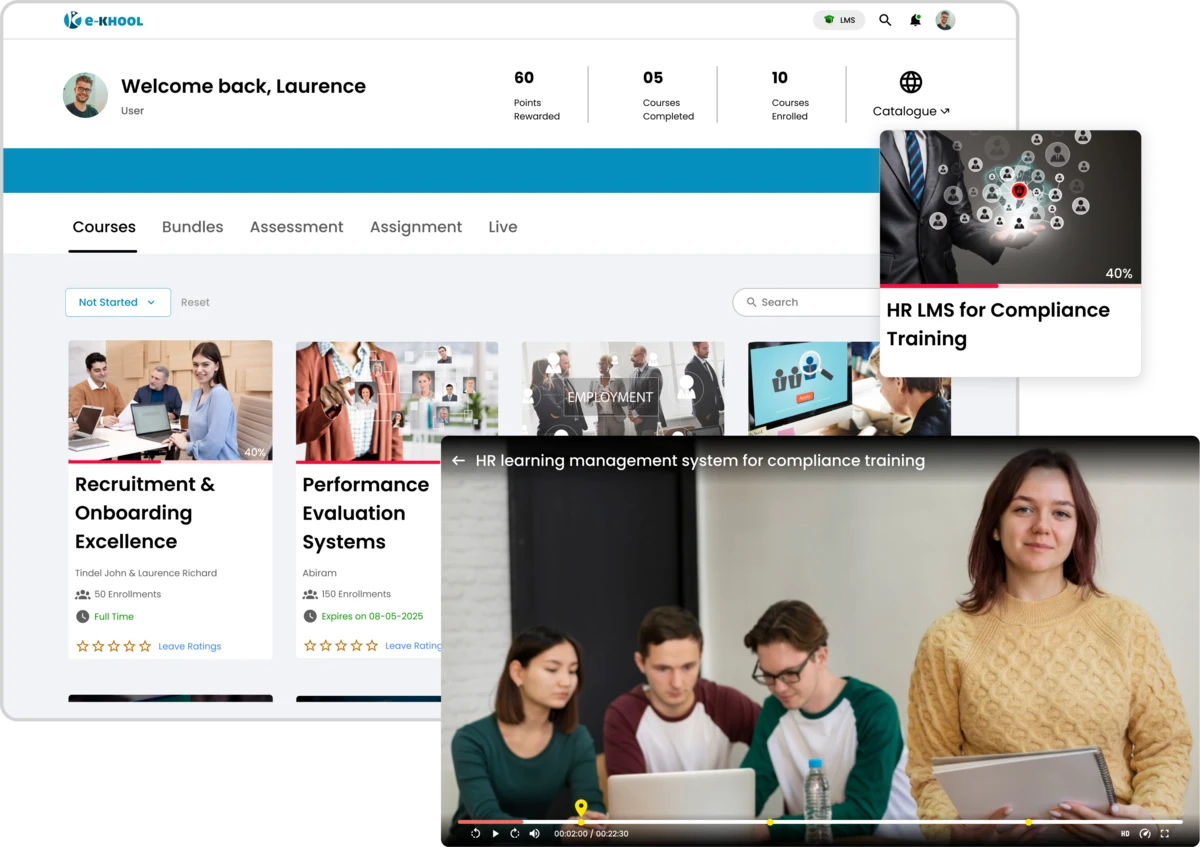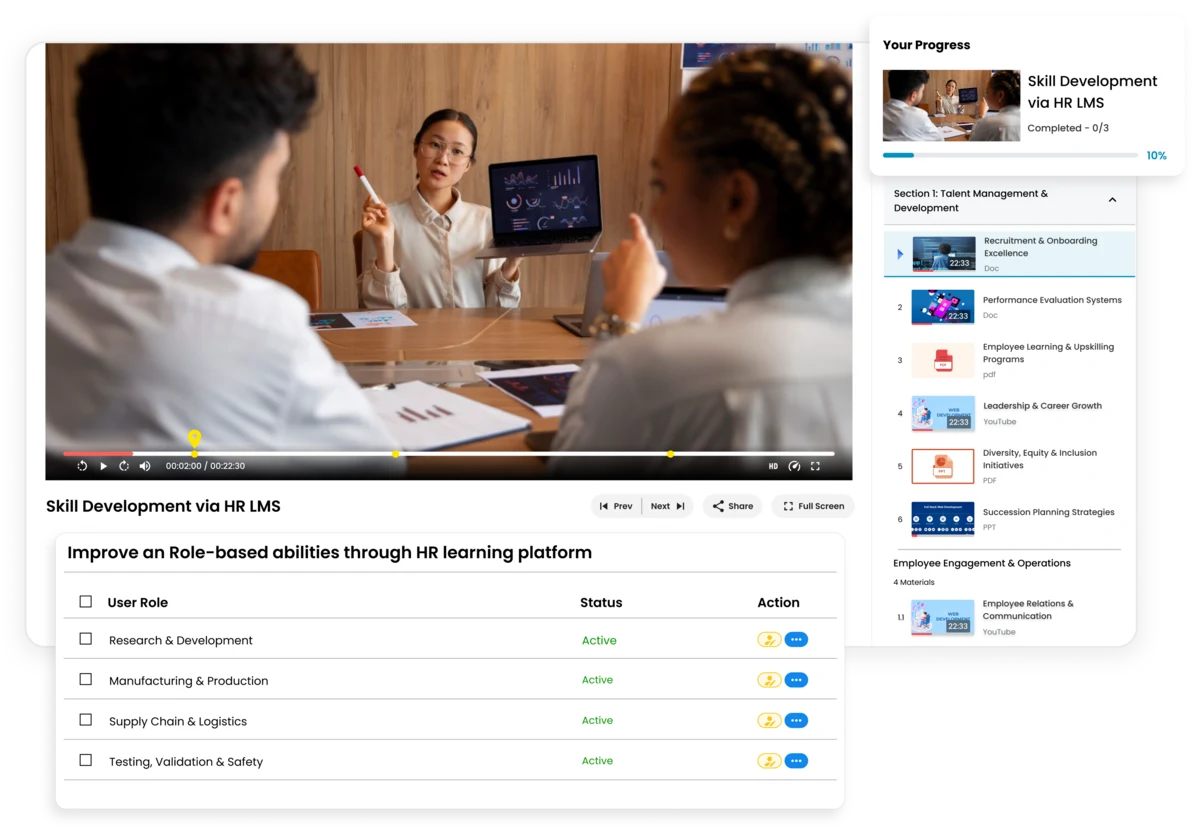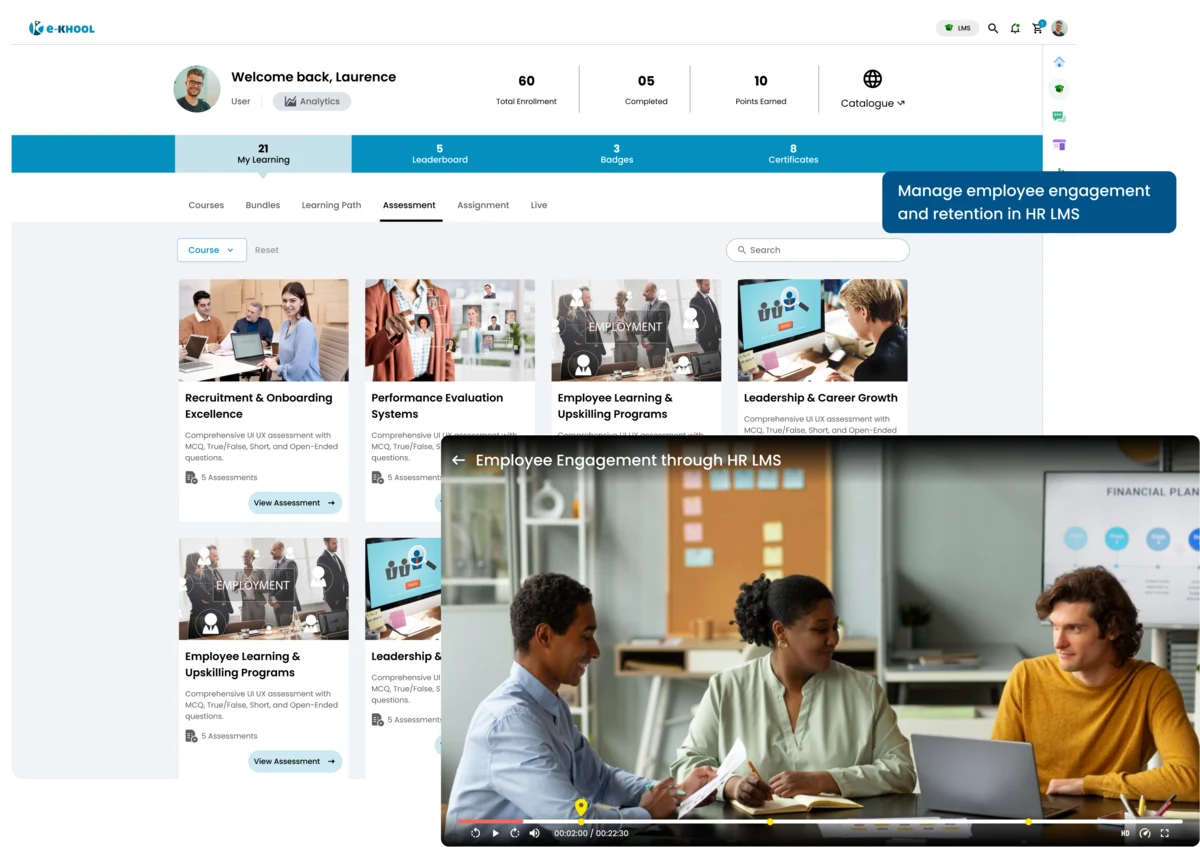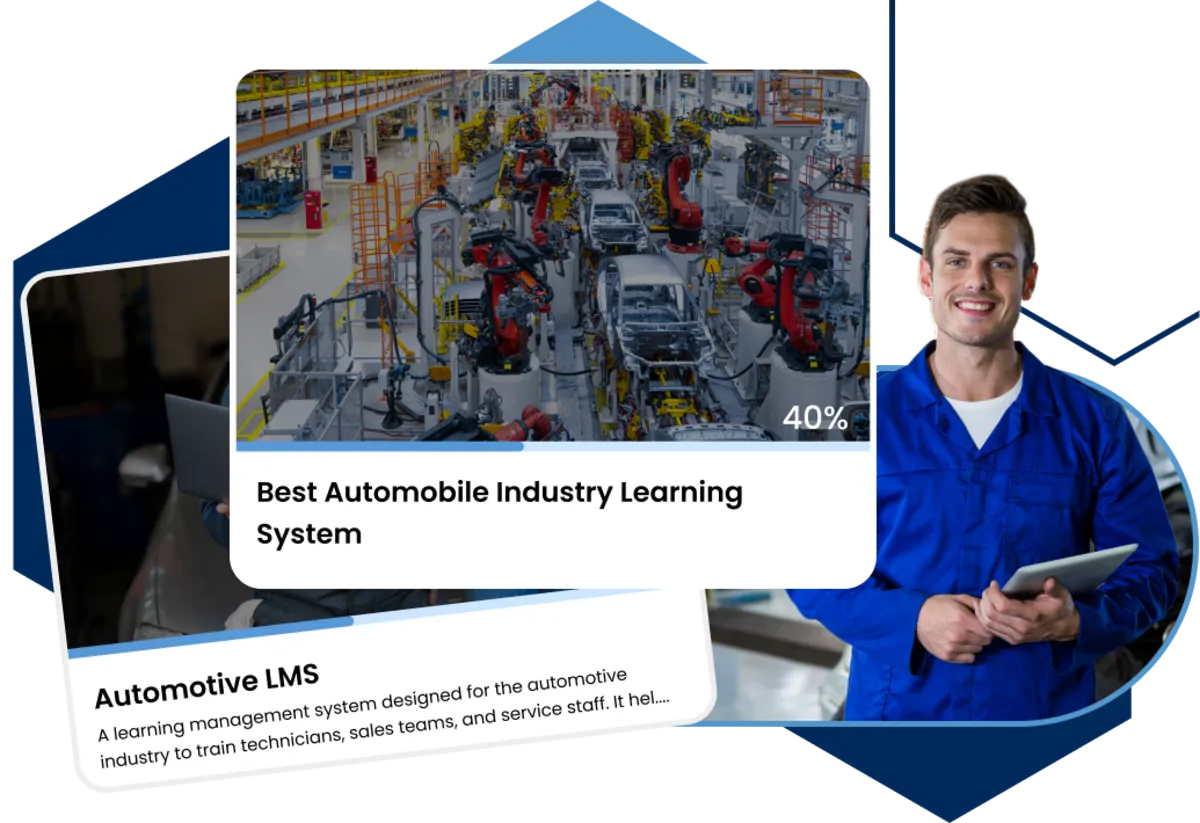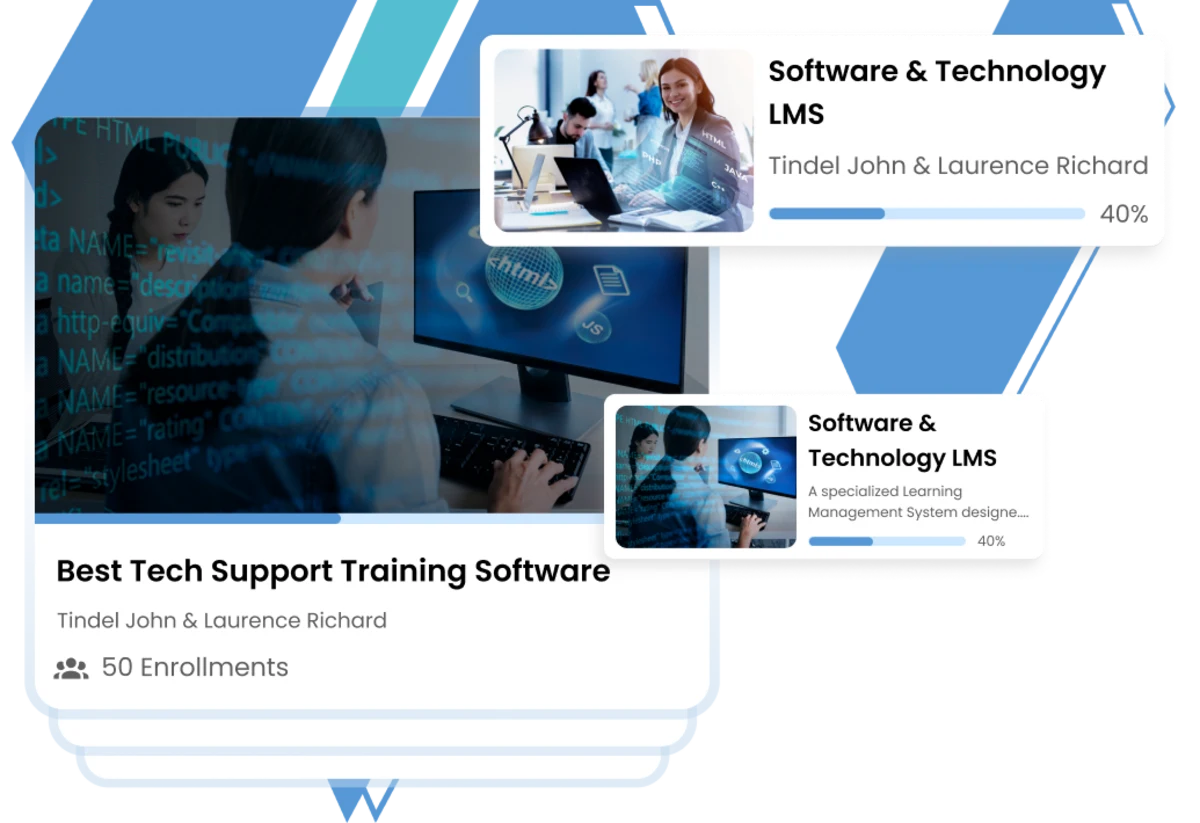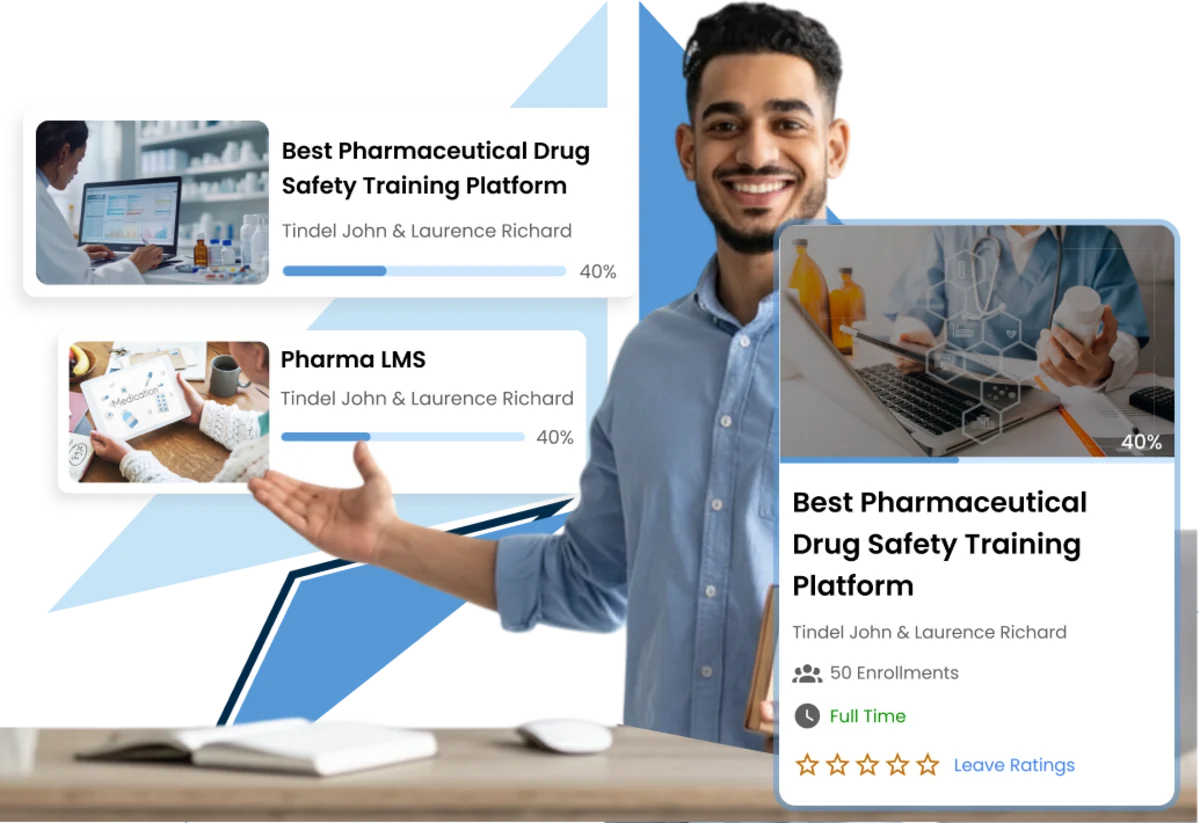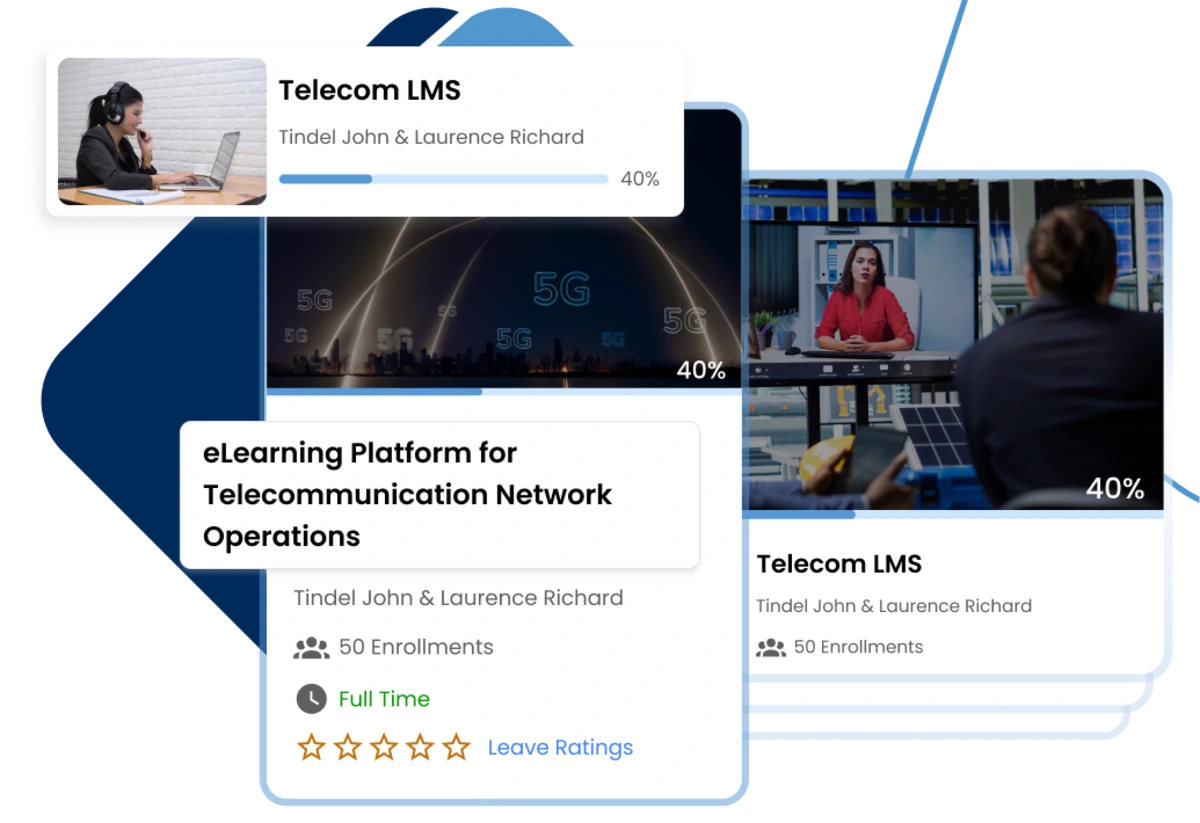e-KHOOL LMS for Human Resource
Having an efficient learning management system for human resources is essential for streamlining organizational training procedures and professional development initiatives.
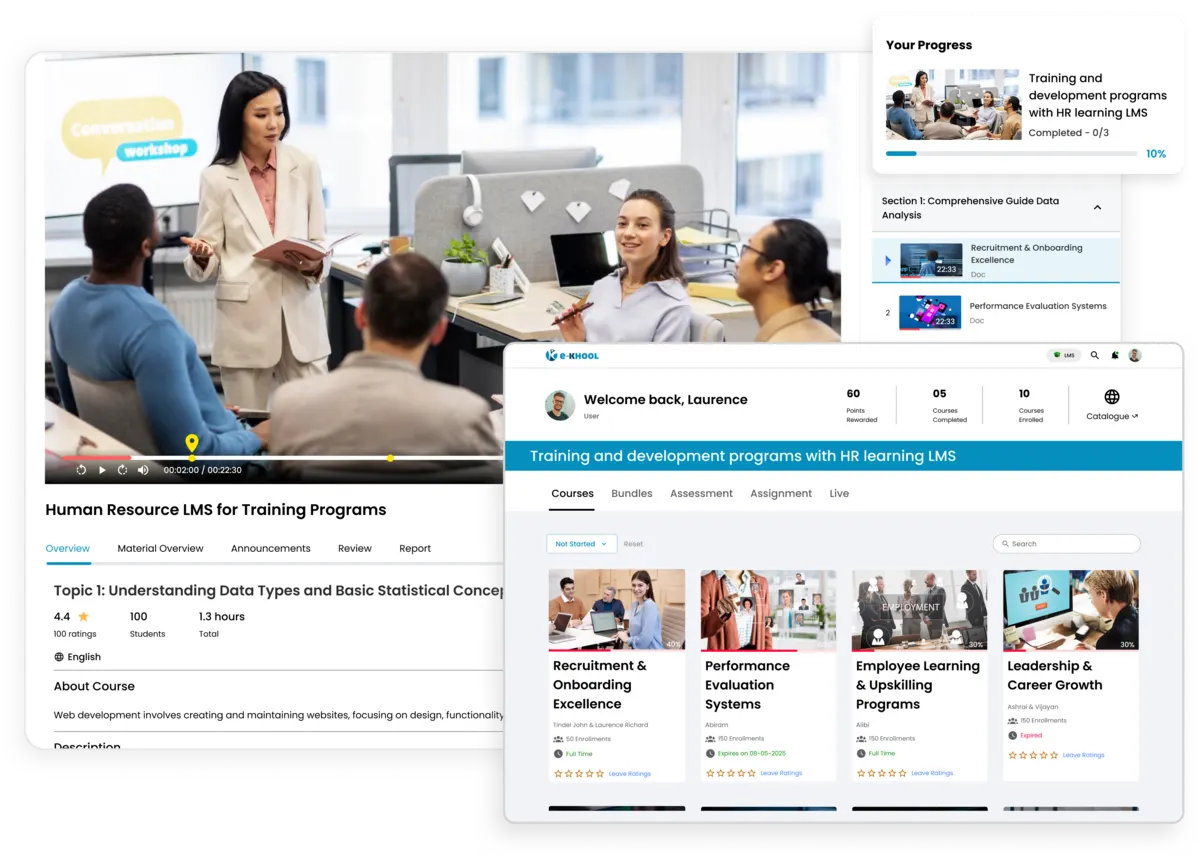
HR Managers & Leaders
Managing performance, providing consistent training, and expediting the onboarding process are all made easier with the help of an LMS.
Recruitment Teams
Enhance hiring efficiency and train recruiters on interview techniques, onboarding, and employer branding with e-KHOOL HR LMS.
Employees & Teams
Employees can track their own progress, receive automated enrollment and overcome common challenges like communication gaps.
L&D Professionals
Easily design impactful learning programs, track employee progress, and measure ROI across the organization with e-KHOOL HR LMS.
Redefine LMS for Human Resources Training with e-KHOOL
The full-featured e-KHOOL LMS offers a user-friendly design that easily integrates into existing training frameworks, reducing administrative work and improving productivity.
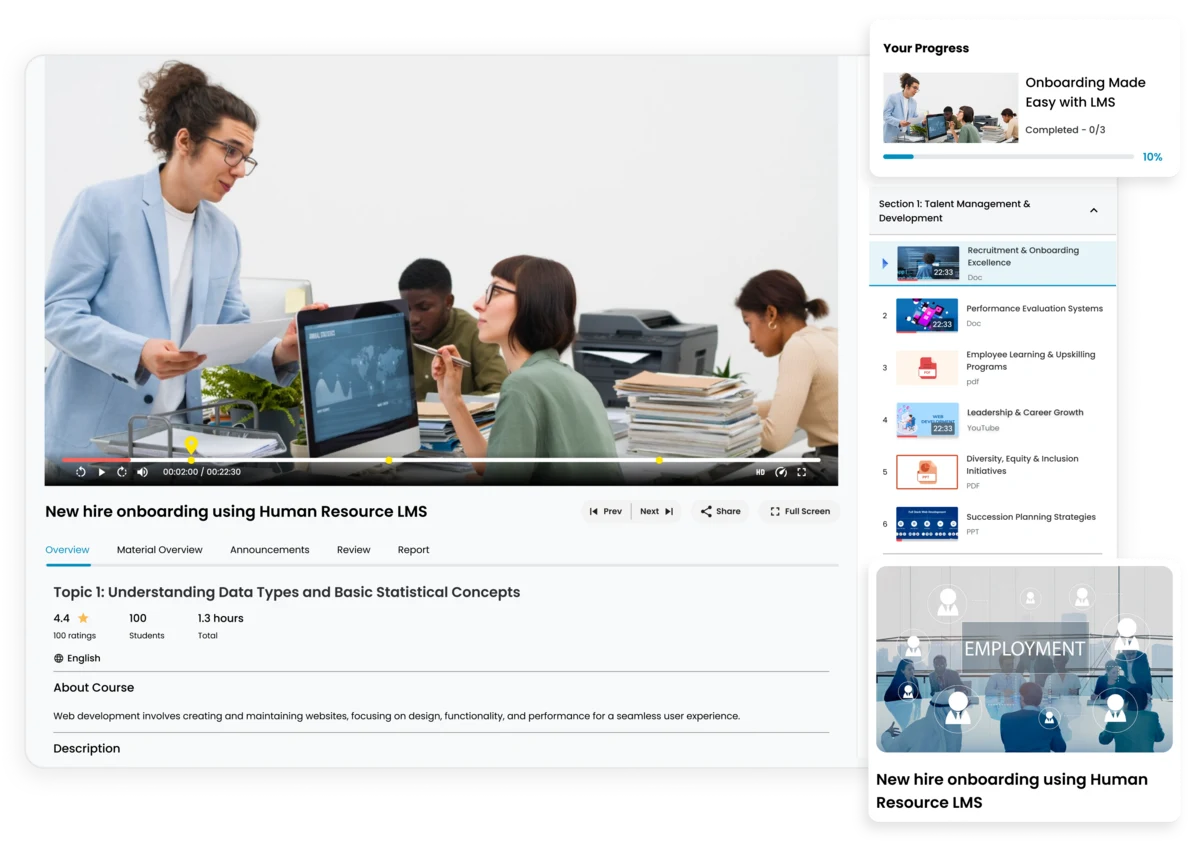
Advantages of Human Resource LMS
Simplify HR operations, improve employee engagement, deliver measurable learning outcomes and flexible training across your organization with e-KHOOL HR LMS platform.
Analytics & Workforce Insights
Gain actionable insights by tracking learning adoption, identifying skill gaps, and measuring engagement with this advanced HR LMS solution.
Intelligent Workforce Forecasting
By merging LMS learning data with HRMS workforce data, organizations can predict future skill gaps and plan hiring or reskilling accordingly.
Secure & Integrated System
Integrate seamlessly with HRIS, payroll, and performance management systems while ensuring enterprise grade security through e-KHOOL HR LMS.
Unified Employee Data
Seamlessly connect training records with HRMS to centralize employee profiles, performance history, and certification data in one system.
Measurable Benefits of e-KHOOL LMS in HR
e-KHOOL HR LMS delivers inclusive, interactive, and effective training, bridging geographical barriers and enabling all employees to participate fully in professional development programs.
50%
Organizations report that new hires reach productivity faster when trained using e-KHOOL’s HR LMS
35%
Companies achieve significant training cost reduction with e-KHOOL HR LMS
25%
e-KHOOL HR LMS helps companies upskill employees and improve retention
